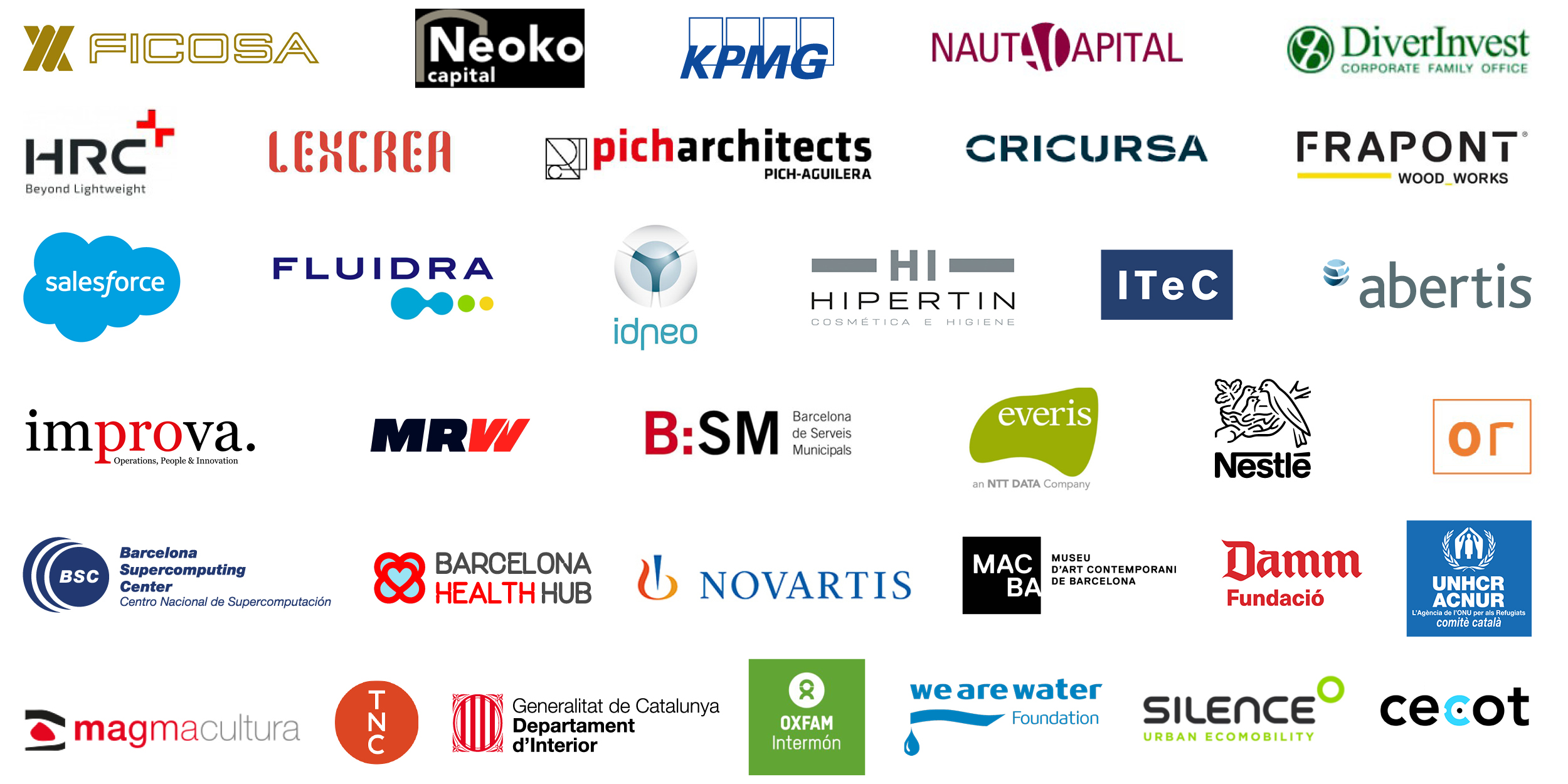- Most viewed
- Last viewed
More than thirty CEOs and entrepreneurs take part in the first international forum on business and management organised by UIC Barcelona
The Executive Education & Business Challenges Forum bridged the gap between the business world and master's degrees and postgraduate university education, and provided new ways of understanding academic knowledge and research
UIC Barcelona has completed the Executive Education & Business Challenges Forum, a four-day online event that brought together more than thirty managing directors and entrepreneurs who have launched successful businesses, from leading national and international corporations.
The Forum was designed by the University’s Alumni & Careers and department with a view to bringing the business world into contact with specialised university education (master's and postgraduate programmes). A total of eleven seminars were held as part of the event, including round tables with expert contributors.
During these talks, guest speakers shared their professional experience at the helm of big businesses and reflected on current business issues. The main topics discussed at the Forum included innovation in the world of business and management; the digitisation of companies following the outbreak of COVID-19; corporations’ social and cultural impact and the link between cooperation and sustainability as new impact emergencies within the world of business.
This international event, aimed primarily at final-year undergraduate and master's students, was attended by around 300 audience members keen to hear the insights from these senior executives in charge of steering national and international corporations.
The Executive Education & Business Challenges Forum began on Monday 3 May with an inaugural talk led by UIC Barcelona rector, Dr Xavier Gil, followed by the first seminar titled “Presente y futuro del emprendimiento en nuestro país. Una historia de vida y de empresa” (‘Entrepreneurship today and in the future in our country. A story about life and business’), given by Josep Maria Pujol, president of FICOSA.
Under the title “Investments: Industry, technology, real estate & entrepreneurship”, the first day of the event featured two round tables, in which representatives of companies such as KPMG España, DiverInvest Asesoramiento EAFI, Nauta Capital, Neoko Capital, Hengrui Corporation, Lexcrea and Pulmobiotics took part.
The first round table focused on how to optimise investments following the COVID-19 pandemic, while the second focused on learning, investigating and reflecting on the world of entrepreneurship, both within and outside universities.
On the second day, the Forum moved onto the topic of architecture. The opening presentation was given by lecturer Felipe Pich-Aguilera from UIC Barcelona School of Architecture. The architect and founder of Picharquitects also spoke during the first round table, with a talk titled “Tejido industrial constructivo y su repercusión en la cadena de valor” (‘The construction industry and its repercussions on value chains’), together with representatives from companies such as Cricursa and Frapont. On the second day, companies such as Salesforce, Fluidra, Hipertin, IDNEO and ITeC, took centre stage as their managing directors discussed which business strategies are essential to creating a disruptive business; then, representatives from Abertis, BSM, Improva Consulting and MRW reflected on the new model of global sustainable mobility.
The third day of the Executive Education & Business Challenges Forum explored how companies are applying new technologies. As stated by UIC Barcelona vice-rector for Research, Innovation and Knowledge Transfer, Jordi Villà, during his opening speech, innovation and the digital business ideas are fundamental considerations in today’s market. Villà proceeded to moderate two round tables, featuring guest speakers from the Barcelona Supercomputing Center, Nestlé, and Everis who shared their thoughts on Barcelona as a digital hub. There were also professionals from the health sciences technology sector present, from corporations such as Barcelona Health Hub and Novartis, who discussed digital innovation in the pharmaceutical sector and trends in e-health.
The third event on Wednesday 5 May concluded the day with a round table in which Román Pérez, director of the University’s Bioengineering Institute of Technology, and UIC Barcelona lecturer and researcher Remei Agulles from the Institute of Advanced Family Studies, also took part in a conversation about bioengineering and bioethics applied to research.
The Forum ended on Thursday 6 May, with three talks related to companies’ social, sustainable and cultural impact. Following an opening presentation by Ainhoa Grandes, president of the MACBA Foundation and the Ship2B Foundation, the three round tables of the day got under way. They focused on the challenges faced by the cultural sector following the COVID-19 crisis, climate-impact emergencies and, finally, urban resilience: the ability of an urban system to prevent and withstand any possible hazard or risk, and recover from it.
The protagonists of the debates on this final day of the Forum included companies such as MagmaCultura, the Damm Foundation, the Teatre Nacional de Catalunya, the Museo de Arte Contemporáneo de Barcelona, Acnur, the Department of Home Affairs of the Generalitat de Catalunya, Intermón Oxfam, Silence Urban Ecomobility, Cecot and We Are Water Foundation.
All the talks that formed part of the Executive Education & Business Challenges Forum were linked to a different master's degree at UIC Barcelona, whose lecturers and directors also took part in moderating the round table discussions, depending on their field.
This international event succeeded in providing new ways of understanding knowledge, research and the link between the business world and universities.
